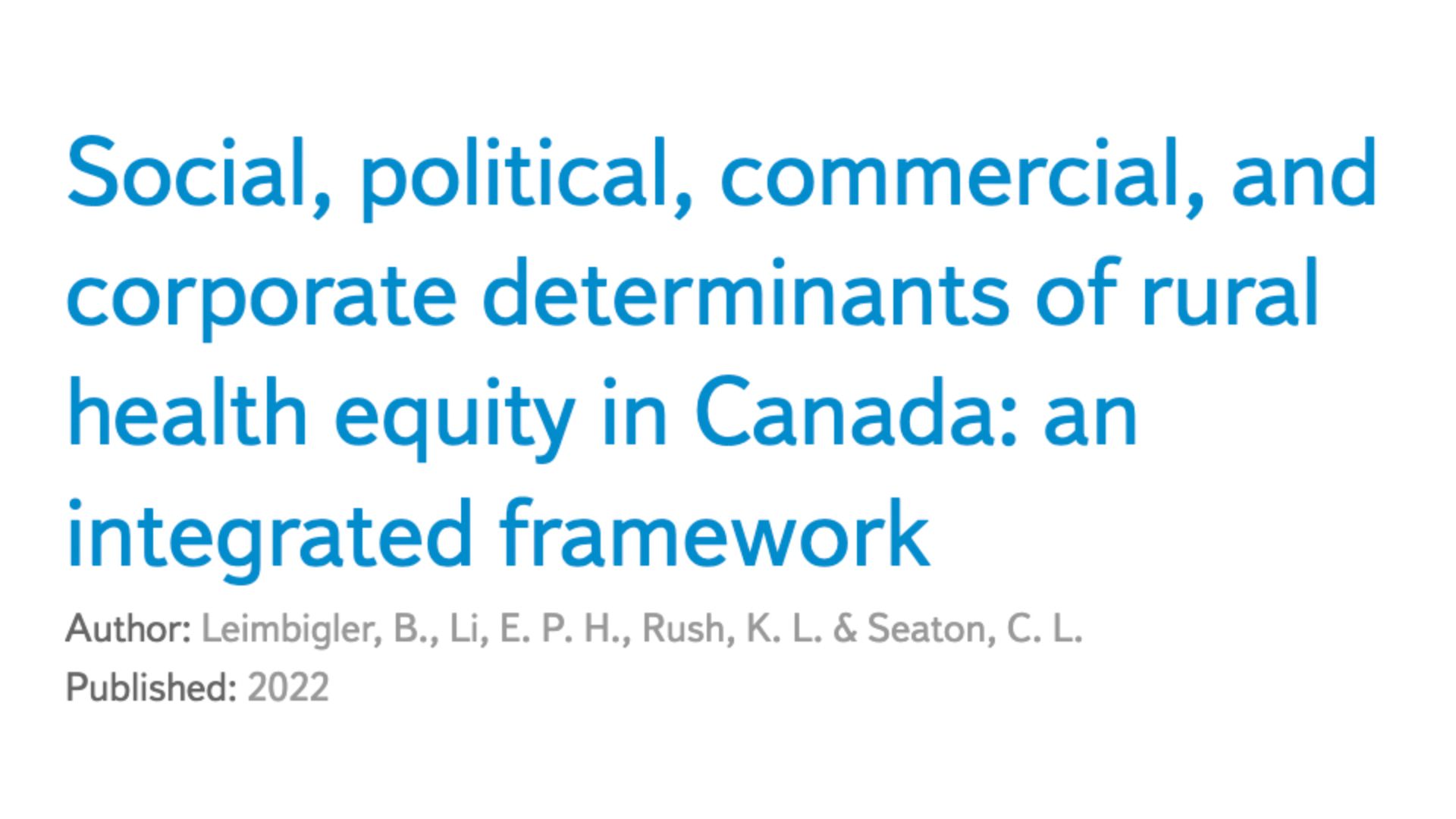Article: Social, Political, Commercial, and Corporate Determinants of Rural Health Equity in Canada: An Integrated Framework

“Compared to their counterparts in urban settings, rural and remote residents can face unique barriers such as lack of access to higher education, job opportunities, technologies and technology infrastructure (i.e. high-speed internet), comprehensive health services and goods, public funding and resources for sustainable community development.” (p. 750)
Social determinants of health, (income, education, housing, and more), have long been recognized as key factors influencing health outcomes. However, addressing these alone are not enough to achieve health equity, specifically in rural settings. Structural determinants such as the political environment, corporate influence, and availability resources cannot be overlooked as they play an important role in influencing the conditions of daily life and determining health.
Reference: Leimbigler, B., Li, E.P.H., Rush, K.L. et al. (2022). Social, political, commercial, and corporate determinants of rural health equity in Canada: an integrated framework. Can J Public Health 113, 749–754 https://doi.org/10.17269/s41997-022-00630-y
-
By
Leimbigler, B., Li, E.P.H. et al.
-
Published
Aug 08, 2023
-
Subject Area
- Health & Wellness - General
- Social Connectedness & Social Isolation
-
Audience
- Academics
- Funders
- Government (Politicians, Policy Makers) and Health Authorities
- Service Providers (Non-profits, Community Organizations, Local government)
- Government
- Health Authorities
-
Category
- Research & Evidence
- Research & Reports
- Best Practices
- Evidence-based & emerging practices
- Policy, Planning, & Procedures
Newsletter
Sign up for the Healthy Aging CORE Alberta e-news to keep up-to-date with activity from the platform and the Community-Based Seniors Services (CBSS) sector across the province.
